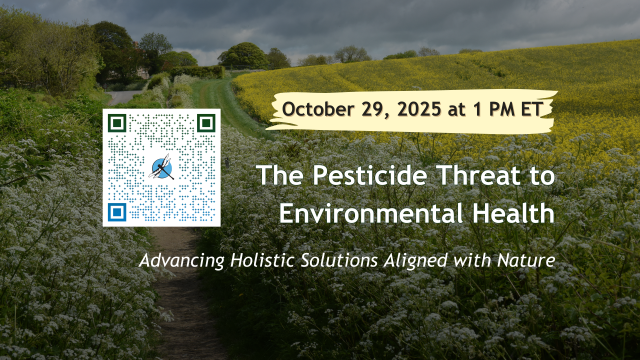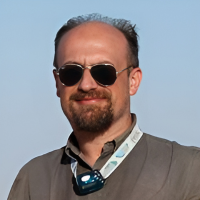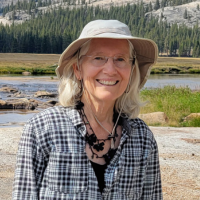09
Oct
National Forum To Convene on Pesticide Threat and Holistic Solutions Aligned with Nature

(Beyond Pesticides, October 9, 2025) The 42nd National Forum Series, The Pesticide Threat to Environmental Health: Advancing Holistic Solutions Aligned with Nature—scheduled to begin on October 29, 2025, 1:00-3:30pm (Eastern time, US), will focus on aligning land management with nature in response to current chemical-intensive practices that pose a threat to health (see Pesticide-Induced Diseases Database), biodiversity, and climate. The virtual Forum is free to all participants. ➡️ Register here.
The Call to the Forum, states:
We are all affected by how land is managed, food is grown, and nature is protected. Different experiences and perspectives may bring us to care about health and the environment and the devastating adverse effects of pesticides and toxic substances. However, ensuring a livable future requires us to cultivate a collective concern about daily decisions on the management of our personal and community spaces, the practices used to grow the food we buy, and the care that we as a society give to complex and fragile interrelationships that sustain the natural world on which we depend.
The Pesticide Threat to Environmental Health: Advancing Holistic Solutions Aligned with Nature challenges participants—as concerned families, community residents, purchasers of products, advocates for policy, decision makers, and workers—to think holistically about ways we can join together to solve the existential threats to health, biodiversity, and climate for which petrochemical pesticides and fertilizers are major contributors.
Speakers will talk about strategies, literally building from the ground up. Whether living in a rural area, a city, or suburb, people are intricately linked by the shared environment. And for this reason, the Forum is intended to focus on embracing, in a practical way, natural systems that serve as the foundation for life.
The Forum begins with case studies on what is being done now to integrate nature into the food production system in ways that are beneficial to the organisms in the environment and the health and economy of the areas where they live. The speakers will talk about their research and practical experience in identifying practices that embrace nature with a collaborative spirit and teach about the value of bats, birds, and beavers in productive agricultural and land management systems, exemplifying the path forward in all aspects of modern life.
According to Beyond Pesticides, the costs (Tegtmeier and Duffy) of conventional, chemical-intensive agriculture, reliant on petrochemical pesticides and fertilizers, have proven to be unsustainable, with incalculable trillions of dollars in present harm and future catastrophic losses, or externalities, associated with current toxic products and practices that are widely used, but unnecessary to productivity and quality of life. The focus of this Forum session calls for a reorientation, replacing toxic practices with the nurturing of natural systems that sustain life.
The speakers at the Forum provide an opportunity to step back, widen the lens, and think about redefining communities’ and individuals’ relationship with nature in all aspects of practices and advocacy.
➡️ Join the virtual Forum as participants come together to empower effective action and chart a path for a livable and sustainable future. Registration provides access to all sessions of the Forum.
Session 1: October 29, 2025, 1 – 3:30 PM Eastern, including Q&A
 Danilo Russo, PhD
Danilo Russo, PhD
Professor of Ecology, University of Naples Federico II, Naples, Italy
Danilo Russo, PhD, is a full professor of ecology, an international leader in bat research, and coauthor of A Natural History of Bat Foraging: Evolution, Physiology, Ecology, Behavior, and Conservation. In A Call to Protect Common Species: Bats as a Case Study (Conservation Letters, A Journal of the Society of Conservation Biology, 2025), he writes the following: “The ongoing biodiversity crisis highlights the need for targeted conservation efforts, yet the focus often remains on rare and endangered species. This overlooks the vital role of common species, which are the ecological backbone of ecosystems, supporting the stability and functioning of biodiversity. We argue that common species, especially their population dynamics and potential tipping points, are too often neglected and that their conservation is urgent. We illustrate this issue using bats (Chiroptera) as a model. This diverse mammalian order features key ecosystem service providers, including insectivores, pollinators, and seed dispersers. Bats are sensitive to anthropogenic pressures, and many species, including common ones, face population declines and the impact of ecosystem disruption. Research and conservation must urgently be expanded to include common species. Through case studies, we demonstrate how common bat species are indicators of environmental changes and the urgent need to monitor their populations. We provide recommendations for improving research, enhancing conservation policies, and adopting a more inclusive framework acknowledging the indispensable role of common species in ecosystem services and biodiversity.”
Dr. Russo’s interests include habitat selection, resource partitioning, sensory ecology, social behavior, evolutionary biology, biogeography, and invasion ecology. Much of his research focuses on bats, but he also works on a range of other model organisms to answer the specific questions he is interested in. In 2019–2023, he chaired the Scientific Committee of the UNEP/EUROBATS Agreement (i.e., the Agreement on the Conservation of Populations of European Bats). Dr. Danilo Russo has served as Editor-in-Chief of the top-ranking zoological journal Mammal Review. He was also the main proposer and Chair of the Management Committee of the EU COST Action CLIMBATS (CA18107). Professor Russo has published over 200 scientific articles in internationally respected journals, including Nature Communications, Current Biology, Ecology Letters, and Biological Reviews. He has conducted fieldwork in diverse regions and environments across the globe, from African rainforests to Israeli deserts and European beech forests. He is currently an Honorary Professor at the Museum für Naturkunde (Berlin, Germany) and at the University of Bristol (UK). Dr. Russo obtained his PhD in Zoology from the University of Bristol in 2002.
 Jo Ann Baumgartner
Jo Ann Baumgartner
Executive Director, Wild Farm Alliance, Watsonville, CA
Jo Ann Baumgartner is the executive director of the Wild Farm Alliance (WFA) and coauthor of the recently released Protecting Birds in Agricultural Landscapes: Reduce risks to beneficial birds on the farm (2025), and many publications on the intersection between biodiversity conservation and agriculture, including beneficial birds, the conservation mandates within the National Organic Program regulations, and the co-management of food safety and conservation.
Wild Farm Alliance focuses on farmland flyways, farmland wildways, and farmland waterways, advising farmers on the installation of nest boxes, perches, and other habitat features that support beneficial birds that provide pest control services. WFA helps farmers with the planting of hedgerows, habitat patches, and corridors that facilitate movement of beneficial species and links wild areas with farmland. The organization also supports the restoration of riparian buffers and protecting waterways across farms, improving water quality, reducing erosion, and protecting aquatic and terrestrial species. By publishing guides, offering webinars, creating short videos, hosting field days and offering technical support, WFA enables farmers and land stewards to adopt wild farming practices. Before joining WFA, Ms. Baumgartner addressed crop, livestock, and fiber issues, was senior research editor for a book of California’s rare wildlife species, and was an organic farmer for over a decade. For her Master’s research in the Environmental Studies Department at San Jose State University, she studied bird predation of insects in apple orchards. Her undergraduate degree is in Soil and Water Science from University of California Davis. Ms. Baumgartner is based in Watsonville, California, and has been with WFA since the organization was founded in 2001.
 Sam Earnshaw
Sam Earnshaw
Author, Expert in Hedgerow and Farmscape Installation and Management, Watsonville, CA
Sam Earnshaw is the author of Hedgerows and Farmscaping for California Agriculture: A Resource Guide for Farmers (2018), which is an acclaimed tool in the protection of ecological balance and increased farm productivity. (The guide is available on the Community Alliance with Family Farmers (CAFF) website.) Since 1996, Mr. Earnshaw has planted hedgerows, windbreaks, grassed waterways, and riparian plantings on over 100 farms. He continues to work on the design and installation of conservation plantings and is a Technical Service Provider with the Natural Resource Conservation Service (NRCS). Hedgerows and grassed waterways are increasingly being planted on farms and can have multiple functions, serving as: habitat for beneficial insects, pollinators and other wildlife; erosion protection and weed control; waterway stabilization; windbreaks; non-point source water pollution and groundwater pollution reduction; a surface water infiltration tool; a buffer from pesticide drift, noise, odors, and dust; living fences and boundary lines; biodiversity enhancement; and an aesthetic resource. Many hedgerow plants attract native bees and other pollinators, and some, such as citrus or other fruit trees and herbal plants, have economic returns. As with any planting, problems and issues can be dealt with through management practices.
In 1992, Mr. Earnshaw began working as Lighthouse Farm coordinator for CAFF, sponsoring monthly meetings and field tours for farmers, sharing techniques in biologically based farming techniques. His work with local California growers in Watsonville, Santa Cruz, Salinas, and Hollister through this program led to CAFF’s leadership in land use and water issues on the Central Coast. In the mid-1980s, he and his wife, Jo Ann Baumgartner, started their farm in Santa Cruz, California (Neptune Farms) and marketed organic vegetables and cut flowers to retail stores, farmers’ markets, and wholesalers. Mr. Earnshaw has a degree from University of California Berkeley (1974) with studies in forestry.
Tony Able
Chair, Southeast Beaver Alliance, Decatur, Georgia
Tony has a dedicated career championing clean water and healthy ecosystems. Tony retired in 2022 after 35 years of distinguished service with the U.S. Environmental Protection Agency (EPA). During his tenure, he specialized in natural stream and wetland restoration, contributing his expertise to a wide range of environmental issues, including watershed management, groundwater remediation, hazardous waste cleanup, non-point source pollution, wetlands protection, and water quality management. Mr. Able’s work with the Southeast Beaver Alliance focuses on how beavers can serve as critical partners in the restoration of streams and wetlands to promote environmental health. As part of his outreach, he leads educational tours at Legacy Park in Decatur, Georgia, which provide opportunities to see beaver ecology in action. Mr. Able also provides education about innovative techniques, such as fencing and flow devices, that allow humans to manage flooding and damage to infrastructure effectively, thereby decreasing human-beaver conflict concerns.
He is deeply involved in a variety of conservation efforts, currently serving on the Board of Directors of the Southeastern Trust for Parks and Land, where he helps to conserve natural landscapes and build public parks that benefit local communities and ecosystems. He is also a dedicated volunteer with Trees Atlanta, where he plants native trees to support local biodiversity and ecosystem restoration. Mr. Able holds a Bachelor of Science in Geology from Georgia Southwestern University and a Master of Science in Geography from Western Kentucky University. His lifelong commitment to environmental stewardship continues to drive his work and volunteer efforts, making a lasting impact on the natural world and the communities he serves.
➡️ Join the virtual Forum as participants come together to empower effective action and chart a path for a livable and sustainable future. Registration provides access to all sessions of the Forum.
All unattributed positions and opinions in this piece are those of Beyond Pesticides.











